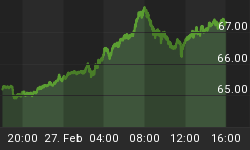Today's Quarterly Inflation Report from the Bank of England has thrown some cold water over those market watchers who were starting to anticipate a rate hike from the BoE as soon as August. However, the Report was, if anything, a little more hawkish than its predecessor, making it clear that the central bank expects some tightening will be necessary in order to keep inflation in line with its two-year target. Market players got carried away with some recent data releases that hinted at stronger consumer demand and a reviving housing market, forgetting that the BoE takes a much longer view of its mandate, and is not focused on short-term data shifts.
The Inflation Report said that inflation will probably rise in the coming months on the back of higher energy and import costs, but then fall back to the 2.0% target in two years, assuming that interest rates rise gradually from the current 4.5% to 4.7% by mid-2007 and a peak of 4.9% through 2008 (our emphasis). The central forecast has inflation overshooting the target if rates stay at 4.5%. Governor King went on to say that this outlook should not be considered a forecast of where interest rates are headed - but let's face it, that outlook pretty much rules out the chance of a rate cut this year.
The other key point in the report was the forecast for GDP growth, which the BoE gave as slightly weaker than in the February Report. On the other hand, the Bank also removed the downside bias to its forecast, which suggests a firmer view of where the economy is headed. The Bank opined that growth is likely to stay close to its long-run average over the next three years - i.e., around 2.5% - underpinned by steady expansion in consumer spending as the housing market revival continues.
All told, the Report is a fine piece of central bank fence-sitting - rates will go up, but not by much, probably not anytime soon, possibly not until early next year - and the focus remains on the two-year horizon.
The Report did note that there seems to have been some pick-up in inflation expectations of late, but said there is little evidence of this sparking higher earnings growth. This will be one area that the BoE and its Monetary Policy Committee will continue to watch closely over the coming months.
Data releases of note this month include March industrial production and manufacturing output (May 11), April RICS housing survey (May 15), April inflation (May 16), March/April unemployment and earnings data, and the minutes of the May 4 MPC policy meeting (all on May 17), April retail sales (May 18), and then April mortgage lending and consumer credit data and the latest GfK consumer confidence index (all on May 31).















